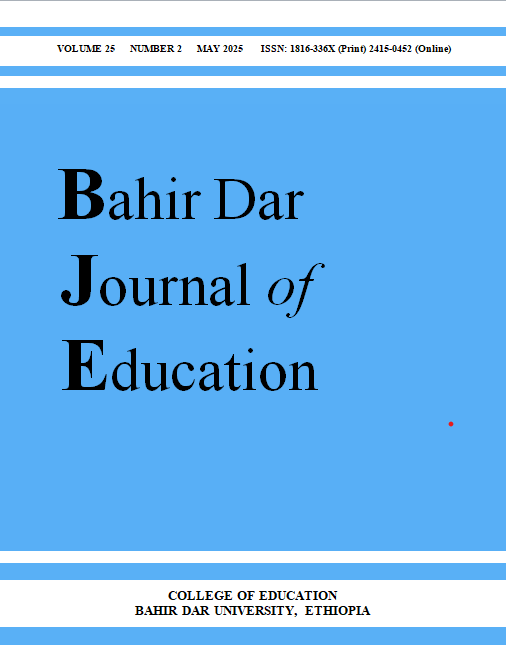The interplay among leadership, language, and curriculum in improving education quality
Abstract
Despite ongoing efforts by governments and substantial investments by donors to enhance the quality of education in Sub-Saharan Africa, tangible improvements remain elusive. Recent studies suggest that the quality of education in some countries has reached a crisis point. This issue of Bahir Dar Journal of Education presents a collection of nine original articles that explore key factors influencing education quality. The articles focus on three primary aspects: the role of educational leaders, the quality and effective implementation of curricula, and the use of English as a foreign language. The current issue also examines the impact of social media use and psychological capital on students’ academic performance. The articles span all educational levels—primary, secondary, and higher education—and offer relevant, practical recommendations directed at stakeholders across the education system. Collectively, these contributions aim to inform policy and practice to foster meaningful improvements in the educational landscape.
Copyright (c) 2025 Getu Shiferaw Wolle

This work is licensed under a Creative Commons Attribution 4.0 International License.
Authors who publish with this journal agree to the following terms:
- Authors retain copyright and grant the journal right of first publication with the work simultaneously licensed under a Creative Commons Attribution License that allows others to share the work with an acknowledgement of the work's authorship and initial publication in this journal.
- Authors are able to enter into separate, additional contractual arrangements for the non-exclusive distribution of the journal's published version of the work (e.g., post it to an institutional repository or publish it in a book), with an acknowledgement of its initial publication in this journal.
- Authors are permitted and encouraged to post their work online (e.g., in institutional repositories or on their website) prior to and during the submission process, as it can lead to productive exchanges, as well as earlier and greater citation of published work (See The Effect of Open Access).

